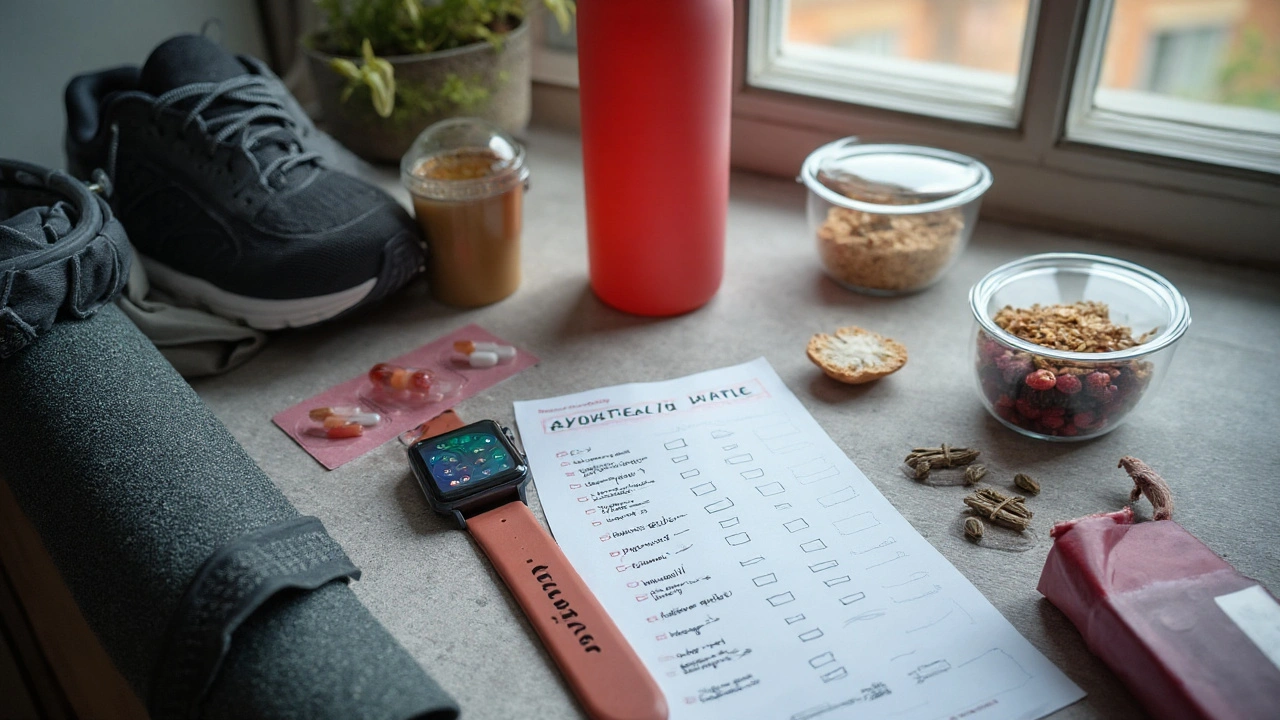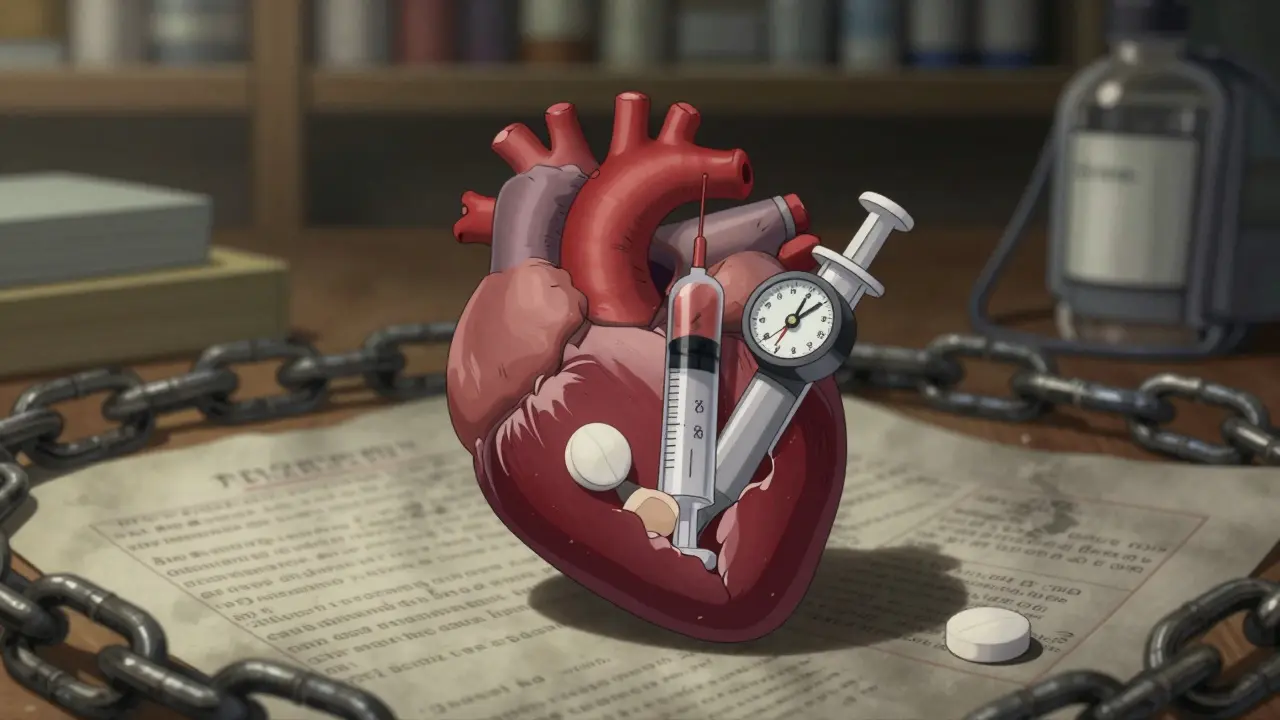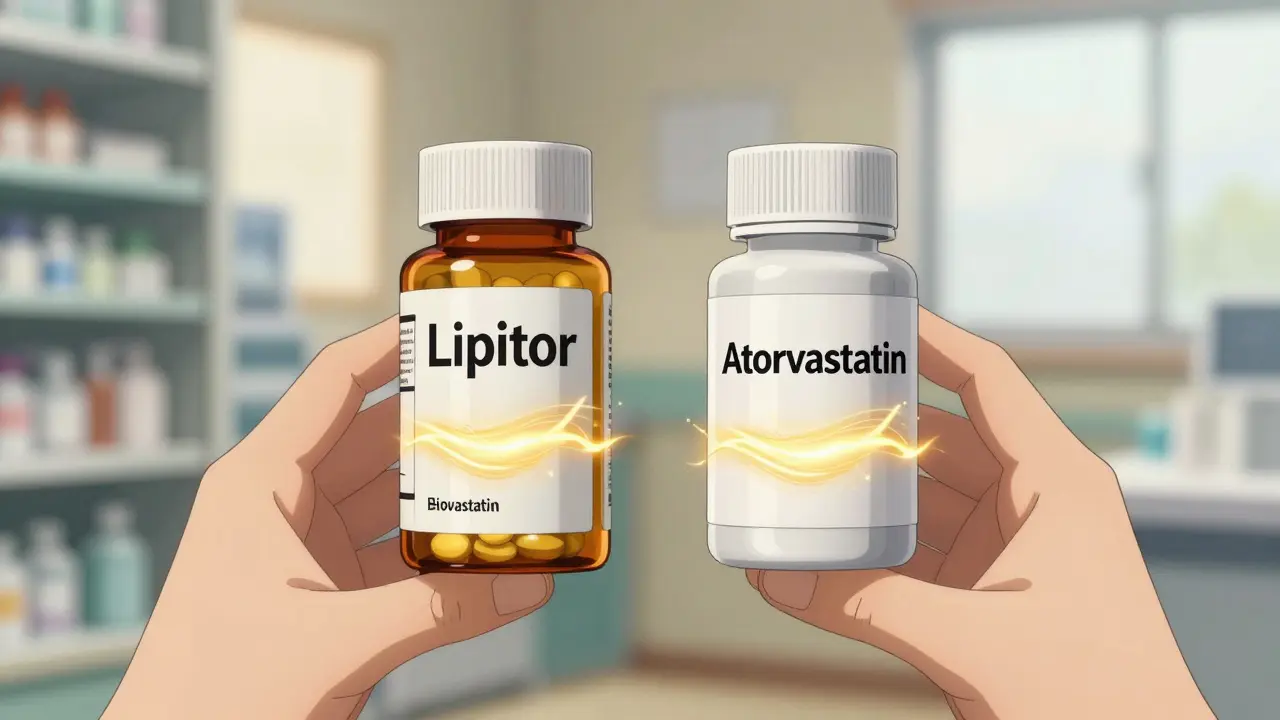You want more energy, better workouts, and faster recovery-but you don’t want to waste money on a shiny tub that overpromises. Adrue is being billed as a “breakthrough” dietary supplement for maximizing health and fitness. Breakthroughs are great, but the only thing that actually moves the needle is what’s inside the formula, how it’s dosed, and whether it matches your goal. No pill replaces training, sleep, protein, and a sensible calorie plan. A smart supplement can still give you a real advantage-if the ingredients are proven and the product is clean.
- Adrue is a branded blend; public, peer‑reviewed evidence on the full product may be limited. Judge it by its ingredient list, doses, and third‑party testing.
- For performance, look for creatine monohydrate (3-5 g/day), beta‑alanine (3.2-6.4 g/day), and caffeine (3-6 mg/kg pre‑workout). These have strong evidence.
- For health support, watch for vitamin D (10-25 μg/day in the UK when needed), omega‑3s (EPA/DHA 1-2 g/day for heart health), and probiotics with strain‑specific research.
- Safety first: check Informed‑Sport/NSF certification, stimulant content, and any interactions (e.g., SSRIs with 5‑HTP; thyroid meds with minerals).
- Money sense: cost per effective dose matters. Sometimes a simple DIY stack beats an all‑in‑one if proprietary blends underdose key ingredients.
What Adrue Is, How It Claims to Work, and the Evidence That Actually Matters
Adrue is marketed as an all‑in‑one formula to help you “maximize your health and fitness goals.” That could mean better training performance, improved recovery, stress support, or general vitality. Because it’s a brand formula, there may not be peer‑reviewed studies on Adrue itself yet. That’s not unusual. What counts: are the individual ingredients backed by solid human research, and are they dosed correctly?
Here’s a quick way to sanity‑check any all‑in‑one like Adrue supplement:
- Look for specific doses, not “proprietary blends.” If the label hides a 3,000 mg “performance complex,” you can’t verify if creatine, beta‑alanine, or citrulline are dosed properly.
- Prefer ingredient forms that match the research (e.g., creatine monohydrate, citrulline malate 2:1, magnesium glycinate, vitamin D3, L‑theanine).
- Scan for evidence‑based pairings: caffeine + L‑theanine for smoother focus; creatine daily for strength; beta‑alanine daily for high‑intensity capacity; electrolytes if you sweat heavily.
Evidence snapshot you can use to judge Adrue’s panel:
- Creatine monohydrate: boosts strength, power, and lean mass. Position stand by the Journal of the International Society of Sports Nutrition (Kreider et al., 2017) rates it as safe and effective at 3-5 g/day.
- Beta‑alanine: improves repeated high‑intensity performance via carnosine buffering. See Saunders et al., Amino Acids, 2017 meta‑analysis; typical daily dose 3.2-6.4 g (tingles are normal).
- Caffeine: reliable ergogenic aid; 3-6 mg/kg taken ~60 minutes pre‑exercise improves endurance and power (Spriet, Sports Medicine, 2014; IOC consensus statements). Adjust down if anxious or training late.
- Citrulline malate: may support blood flow and repetition volume; evidence is mixed but promising at ~6-8 g pre‑workout (Gonzalez et al., 2018 reviews).
- Protein: aim for 1.6-2.2 g/kg/day to maximize muscle gain; if Adrue includes protein or EAA/BCAA, make sure it fits your daily target (Morton et al., British Journal of Sports Medicine, 2018).
- Vitamin D: in the UK, 10 μg/day is advised in autumn/winter for most adults (NICE guidance; UK Health Security Agency). Blood testing is best before higher dosing.
- Omega‑3 (EPA/DHA): supports cardiovascular health and may reduce soreness in some contexts; Cochrane reviews (2020) suggest modest but meaningful effects depending on outcome; 1-2 g/day EPA+DHA is common.
- Ashwagandha: may reduce stress and modestly improve strength/VO2 in some trials; mixed but encouraging (Wankhede et al., J Int Soc Sports Nutr, 2015; Lopresti, Medicine, 2019). Choose KSM‑66/Withania somnifera extract with withanolide standardization.
- Probiotics: strain matters (e.g., Lactobacillus rhamnosus GG for GI; Bifidobacterium lactis for immunity). Look for CFU counts and strain codes, not just the species name.
Red flags on any “breakthrough” label:
- Underdosed hero ingredients (e.g., 500 mg creatine-too low to matter).
- Stimulant soup (caffeine + synephrine + yohimbine) without clear dosing and warnings.
- Novel botanicals without EU/UK Novel Foods clearance or with vague “proprietary alkaloids.”
- No third‑party testing (Informed‑Sport, Informed‑Choice, or NSF Certified for Sport) if you compete or care about contamination risks.
UK context matters if you live here (hi, Bristolers). Supplements are regulated as foods, not medicines. The Food Standards Agency (FSA) oversees safety, the Medicines and Healthcare products Regulatory Agency (MHRA) steps in if medical claims creep in, and the Advertising Standards Authority (ASA) polices marketing claims under the CAP Code. Botanicals and novel ingredients must comply with retained EU law (Novel Foods Regulation). If Adrue includes red yeast rice, note the EU cap on monacolin K and the statin‑like interaction risks. If it uses CBD or exotic extracts, Novel Foods authorisation is a must.
Does Adrue Fit Your Goal? Decision Criteria, Best‑for/Not‑for, and Real‑World Scenarios
Different goals need different tools. An all‑in‑one can be convenient, but convenience only helps if the formula fits your target and schedule.
Quick decision rules:
- Strength/muscle: check for creatine (3-5 g/day), adequate protein across the day, and possibly beta‑alanine if you do intervals/metcon.
- Endurance: look for ~6-8 g citrulline malate pre‑training, modest caffeine, beetroot/nitrate (400-800 mg nitrate 2-3 hours pre), and electrolytes if you sweat a lot.
- Fat loss: prioritize appetite control and sustainable energy-protein, fibre (glucomannan 3 g/day split with water), and caffeine/theanine; avoid harsh stimulants.
- Stress/sleep: low‑dose caffeine (or none), L‑theanine (100-200 mg), magnesium glycinate (200-400 mg), and possibly ashwagandha (300-600 mg extract), timed away from workouts if sedating.
- General health: vitamin D if deficient, omega‑3, and a sensible multivitamin that respects UK NRVs-not mega‑doses.
Best for:
- Busy people who’d rather take one scoop/pill combo than manage four tubs.
- Beginners who want a simple start without getting lost in minutiae.
- Intermediate lifters or runners who’ve nailed sleep and protein and want a small edge.
Not for:
- Competitors subject to strict anti‑doping rules unless Adrue is Informed‑Sport certified.
- People who train late and are sensitive to caffeine (unless Adrue has a stim‑free version).
- Anyone with a complex medication regimen without a GP or pharmacist check (e.g., SSRIs, blood pressure meds, thyroid meds, anticoagulants).
Scenarios you can map to your life:
- 6 a.m. lifter: a caffeinated Adrue taken 45-60 minutes pre‑session could help focus and performance. If it lacks creatine, add 3-5 g to breakfast.
- Lunchtime runner: stim‑free formula with citrulline, beetroot, and electrolytes avoids the 3 p.m. crash. Keep caffeine to coffee if you need it.
- Perimenopausal athlete: avoid heavy stimulants; look for magnesium glycinate and ashwagandha for stress/sleep, plus protein to support lean mass. Check iron status with your GP before adding iron.
- Vegan lifter: ensure vitamin B12 is covered, consider algal omega‑3, and confirm creatine is included or buy it separately (creatine is vegan‑friendly).
- Cutting phase: appetite matters more than a flashy pre‑workout. Use a formula with fibre/satiety support, keep caffeine moderate, and maintain protein at ~1.8-2.2 g/kg/day.

Safety, Dosing, Timing, and How to Stack Adrue Without Backfiring
Even good supplements misused can mess with your sleep, gut, or recovery. Here’s how to use Adrue intelligently.
General dosing and timing:
- Creatine: 3-5 g daily, any time, with or without food. Loading (20 g/day split for 5-7 days) is optional; steady daily dosing works fine.
- Beta‑alanine: 3.2-6.4 g/day, split to reduce tingles. Takes ~4 weeks to fully saturate-don’t expect instant magic.
- Caffeine: 3-6 mg/kg taken 45-60 minutes before hard training. Halve that if you’re sensitive. Avoid within 8 hours of bedtime.
- Citrulline malate: 6-8 g ~45 minutes pre‑workout to support pump and reps.
- Vitamin D: in the UK, routine winter dose is 10 μg/day unless bloodwork suggests otherwise. Take with a meal containing fat.
- Magnesium glycinate: 200-400 mg in the evening for sleep and relaxation.
Stacking rules to avoid overlap:
- One stimulant source at a time. If Adrue has 200 mg caffeine, skip the double espresso pre‑lift.
- Mind the total beta‑alanine across products; overdosing won’t boost results and can upset your skin (paresthesia) or gut.
- Creatine is daily, not pre‑only. If Adrue is pre‑only and underdosed on creatine, add a separate daily creatine supplement.
- Electrolytes: add in hot weather or long sessions; too much sodium without water can backfire.
Safety checks (UK‑focused but broadly useful):
- Third‑party testing: Informed‑Sport, Informed‑Choice, or NSF Certified for Sport reduces contamination risks. Essential for tested athletes.
- Medication interactions: SSRIs/SNRIs with 5‑HTP or St John’s wort; anticoagulants with high‑dose omega‑3 or ginkgo; thyroid meds with iron, calcium, or magnesium (separate by 4 hours).
- Health conditions: hypertension (avoid high stimulants), kidney disease (consult your doctor before creatine), pregnancy/breastfeeding (stick to basic prenatal‑safe nutrients; avoid exotic botanicals).
- Allergies/intolerances: check for dairy, soy, gluten, shellfish, or artificial sweeteners if you’re sensitive.
- Age: teens don’t need complex stacks. Focus on food, sleep, skill; creatine may be considered in late teens with coach/parent/GP oversight.
How to test if Adrue actually helps you:
- Set a clear metric: 5‑rep max on squat, 5 km time, perceived stress score, sleep duration.
- Run a 2‑week baseline with no changes.
- Add Adrue for 4 weeks, keep training and diet constant, and measure the same metrics weekly.
- If there’s no meaningful change, adjust dose/timing once; if still nothing after 2-3 more weeks, it’s probably not for you.
Pitfalls to avoid:
- Chasing the “tingle” or “buzz” as proof it works. Sensation isn’t performance.
- Taking a heavy stim blend after lunch and wondering why you’re awake at 1 a.m.
- Ignoring calories and protein while expecting a supplement to build muscle or burn fat.
Smart Shopping: Price, Certification, Comparisons, and Better Alternatives if Needed
Don’t just glance at the sticker price. Calculate cost per effective dose, check certifications, and compare to a simple stack tailored to your goal.
Use this quick comparison to sense‑check value:
| Option | What You Get | Pros | Cons | Typical UK Cost (per day) |
|---|---|---|---|---|
| Adrue (all‑in‑one) | Blend of performance + health ingredients in one product | Convenient; one purchase; flavours may be palatable; simple routine | Risk of underdosing; proprietary blends; may include stimulants you don’t want | £1.50-£3.00 (varies by tub size and servings) |
| DIY Performance Stack | Creatine (3-5 g), beta‑alanine (3.2-6.4 g), caffeine (as coffee or tabs), electrolytes | Transparent dosing; high evidence; modular-skip stimulants when needed | Multiple products; more planning | £0.60-£1.50 depending on brands |
| Health Support Stack | Vitamin D (seasonal), omega‑3 (1-2 g EPA/DHA), magnesium glycinate (200-400 mg) | Targeted to common deficiencies; helps sleep/recovery | Not a performance booster by itself | £0.80-£1.80 depending on quality |
| Goal‑Specific Add‑Ons | Beetroot nitrate for endurance; ashwagandha for stress; probiotics by strain | Customizable | Evidence varies by compound and dose | £0.30-£1.20 extra per selected add‑on |
Certification checklist before you buy:
- Third‑party tested (Informed‑Sport/NSF), batch number searchable.
- Clear label with exact doses and ingredient forms.
- Responsible claims (no “cures,” “melts fat,” or medical promises).
- UK/EU compliance: Novel Foods status where relevant; sensible vitamin/mineral levels.
- Company transparency: manufacturing location, contactable support, fair return policy.
How to read the price tag like a pro:
- Cost per serving: divide price by servings per tub.
- Cost per effective dose: if Adrue lists 2 g citrulline but you need ~6 g, you’ll need 3 servings-use that number, not the label serving, to judge value.
- Opportunity cost: if you only need creatine and caffeine, an all‑in‑one might be overkill.
Alternatives if Adrue doesn’t tick your boxes:
- Performance minimalists: creatine monohydrate + black coffee + electrolytes. Simple and proven.
- Strength with less buzz: creatine + beta‑alanine + theanine (100-200 mg) + small caffeine (50-100 mg) or none.
- Endurance: beetroot juice shots (400-800 mg nitrate), modest caffeine, and sodium according to sweat rate.
- Recovery and life load: magnesium glycinate at night, protein spaced across meals (0.3-0.5 g/kg/meal), and omega‑3 if your oily fish intake is low.
- Gut‑first approach: strain‑specific probiotics and fibre (oats, psyllium), then layer performance aids later.
Mini‑FAQ
Does Adrue actually work? If it doses proven ingredients correctly for your goal, likely yes-you’ll feel it most in tough sessions and steady progress over 4-8 weeks. If the doses are low or mismatched, you may feel little beyond flavour and placebo.
Is Adrue safe? It depends on the formula and your health. Look for third‑party testing and avoid heavy stimulant blends if you’re sensitive or train late. If you’re pregnant, on meds, or have a health condition, check with your GP.
When should I take it? Performance blends: 45-60 minutes pre‑workout. Health nutrients like vitamin D or omega‑3: with meals. Creatine: anytime daily.
Can I take Adrue every day? Usually yes, but if it contains high caffeine, cycle lower doses or take rest days caffeine‑free to protect sleep and sensitivity.
What about drug tests? Choose an Informed‑Sport certified batch if you’re a tested athlete. No certification, no guarantee.
Next steps and troubleshooting
- Beginner lifter: get your protein to ~1.6-2.0 g/kg/day, sleep 7-9 hours, train 3-4 days/week. Add Adrue only if it covers creatine and a sensible pre‑workout dose. Track your 5‑rep max and sleep for 6 weeks.
- Busy parent: pick the stim‑free version if training after 6 p.m. Use Adrue on training days only; on rest days, take just creatine and magnesium for sleep.
- Endurance runner: if Adrue lacks beetroot/nitrate, add it 2-3 hours pre‑long run. Keep caffeine under 3 mg/kg for races to avoid GI issues.
- Perimenopausal athlete: prioritise sleep support (magnesium, theanine), and maintain protein at 1.8-2.2 g/kg. If Adrue is stim‑heavy, look for a low‑stim or daytime‑only approach.
- Vegan strength trainee: ensure B12 is covered elsewhere; add algal omega‑3 if your diet is fish‑free. Creatine is vegan-don’t skip it.
- Plateaued lifter: if you’ve used Adrue for 6-8 weeks with no change, test a DIY stack with proven doses. Sometimes less is more.
- Budget buyer: compare cost per effective dose across products. If Adrue underdoses key ingredients, build your own targeted stack.
Final thought: supplements should be boringly effective. If Adrue’s label is transparent, doses line up with research, and it fits your training and sleep, it’s worth a shot. If not, you’ve got a clear, cheaper roadmap above.






Gus Fosarolli
August 30, 2025 AT 14:39Adrue? More like Ad-ruh, as in 'advertising that rhymes with 'meh'. I’ve seen enough proprietary blends to last a lifetime. If your supplement’s label looks like a crypto whitepaper, run. Creatine monohydrate costs less than your morning latte and actually works. Stop paying for flavor and hype.
Evelyn Shaller-Auslander
September 1, 2025 AT 10:33i just took creatine and vitamin d for 3 months… my sleep got better and my squats feel easier. no tingles, no buzz, no magic. just science. maybe adruw is fine if it dosed right but i dont trust blends lol
Asbury (Ash) Taylor
September 1, 2025 AT 11:58Thank you for this comprehensive, meticulously researched breakdown. The emphasis on evidence-based dosing and third-party certification is not only commendable but essential in an industry rife with unsubstantiated claims. I particularly appreciate the nuanced discussion of UK regulatory frameworks and the distinction between performance enhancement and foundational health support. This is precisely the kind of critical thinking the supplement space desperately needs.
Kenneth Lewis
September 2, 2025 AT 08:17bro i bought this thing and it made me feel like a robot on a caffeine bender… then i realized it had 200mg caffeine and like 50mg of ‘energy complex’ which is just sugar and chalk. 🤡
Jim Daly
September 2, 2025 AT 09:43THIS IS A SCAM. THEY USE BULLSHIT INGREDIENTS THAT DONT EVEN EXIST. I SAW A GUY ON TIKTOK SAY HE LOST 20 POUNDS WITH THIS AND NOW HE'S IN THE HOSPITAL. THEY'RE LYING TO YOU. I'M TELLING YOU. I KNOW THINGS.
Tionne Myles-Smith
September 2, 2025 AT 21:28OMG I LOVE THIS POST!! I’ve been trying to figure out what to take and this literally made me cry 😭 I’m a 34-year-old mom who lifts at 5am and this just gave me so much clarity. Creatine + vitamin D + magnesium = my new holy trinity. Thank you for writing this like a real human!
Leigh Guerra-Paz
September 3, 2025 AT 13:39Wow, I just want to say how incredibly thoughtful and detailed this is-I’m so impressed by how you’ve broken down each ingredient, explained the science, and even included real-life scenarios for different lifestyles. I’ve been taking a similar supplement for months and I didn’t realize I was underdosing on beta-alanine until now! Also, the note about taking magnesium glycinate at night? Genius. I’m going to start doing that tonight. Thank you for being so thorough and kind in your approach-it means a lot.
Jordyn Holland
September 3, 2025 AT 22:08How is this even being taken seriously? The idea that a 'supplement' can 'maximize health and fitness' without addressing the fundamental human behaviors of eating whole foods, sleeping, and moving consistently is not just naive-it’s morally irresponsible. You're selling placebo to people too lazy to cook a chicken breast. Sad.
Jasper Arboladura
September 4, 2025 AT 21:59Adrue? I've reviewed 87 proprietary blends in my career. The only ingredient here with clinical significance is creatine-if it's even dosed above 1g. The rest? Aesthetic filler. The 'ashwagandha' is likely KSM-66 at 125mg-barely above placebo. And no mention of bioavailability? Amateur hour. This isn't a breakthrough. It's a marketing spreadsheet.
Joanne Beriña
September 5, 2025 AT 09:53AMERICA MADE THE BEST SUPPLEMENTS. THIS IS JUST SOME CANADIAN FAKE STUFF. IF YOU WANT REAL RESULTS YOU NEED TO BUY AMERICAN. OUR FDA IS STRONGER. OUR SCIENCE IS BETTER. OUR PEOPLE ARE HARDER. THIS ADHUE IS A LIBERAL TRICK TO MAKE YOU WEAK.
ABHISHEK NAHARIA
September 6, 2025 AT 21:38In the Indian context, where nutrition is often dictated by regional availability and economic constraints, the notion of purchasing branded supplements like Adrue is a luxury. The foundational pillars of fitness-proper sleep, adequate protein from dals and paneer, and daily physical labor-are far more impactful than any proprietary blend. One must question the cultural imposition of Western supplement ideology upon populations with entirely different metabolic and dietary frameworks.
Hardik Malhan
September 7, 2025 AT 07:15Adrue’s formulation lacks pharmacokinetic optimization. Without CYP450 interaction profiling or first-pass metabolism data, the bioavailability of its phytochemicals is questionable. The absence of AUC and Tmax metrics renders efficacy claims statistically invalid. Recommend conducting a randomized crossover trial with plasma biomarker analysis before any recommendation.
Casey Nicole
September 8, 2025 AT 22:49I used to believe in supplements until I saw my sister’s bloodwork after she took one like this. Her liver enzymes were through the roof. Now she’s on meds. This isn’t health. It’s corporate greed wrapped in gym bro language. They don’t care if you die. They just want your credit card.
Richard Elias
September 9, 2025 AT 18:03You're all missing the point. This isn't about ingredients. It's about discipline. If you need a pill to feel strong, you're already weak. I don't take anything but protein powder and I deadlift 400lbs. Stop looking for shortcuts. Real strength comes from grit, not gel caps.
Scott McKenzie
September 11, 2025 AT 10:04Love this breakdown! 🙌 Seriously, the DIY stack comparison is gold. I went from spending $80/month on some fancy 'elite performance blend' to just buying creatine, caffeine pills, and omega-3s from Costco. Now I save $50 a month and feel better. No tingles, no crashes, just steady gains. 🏋️♂️💡
Jeremy Mattocks
September 12, 2025 AT 20:59Let me tell you, I’ve been in the fitness game for over 20 years, and I’ve tried every supplement under the sun-from the obscure herbal extracts from obscure Amazon sellers to the overpriced 'bio-optimized' powders that cost more than my gym membership. What I’ve learned is this: the simplest things always win. Creatine monohydrate, vitamin D, magnesium, and a decent protein source-those are the holy grail. Everything else? It’s just noise. I’ve seen people spend thousands chasing the next 'breakthrough' while ignoring the basics. The truth is, if your diet, sleep, and training are solid, you don’t need half of what’s on the shelf. Adrue? Maybe. But only if it’s transparent and dosed right. Otherwise, stick with the classics. They’ve stood the test of time for a reason.
Paul Baker
September 14, 2025 AT 10:07bro i just took creatine and i'm good 🤙
Zack Harmon
September 15, 2025 AT 21:00THEY'RE HIDING THE TRUTH! ADHUE HAS A SECRET INGREDIENT THAT KILLS YOUR GUT MICROBIOME! I SAW A VIDEO ON YOUTUBE WHERE A GUY GOT A COLONOSCOPY AND THEY FOUND BLACK SLIME INSIDE HIM! THEY'RE COVERING IT UP! I'M TELLING YOU! I KNOW WHAT I KNOW!
Jeremy S.
September 16, 2025 AT 11:38Appreciate the balance here. Not every supplement needs to be a miracle. Sometimes just getting the basics right is the real win.